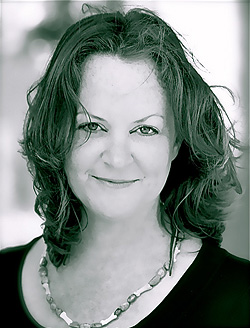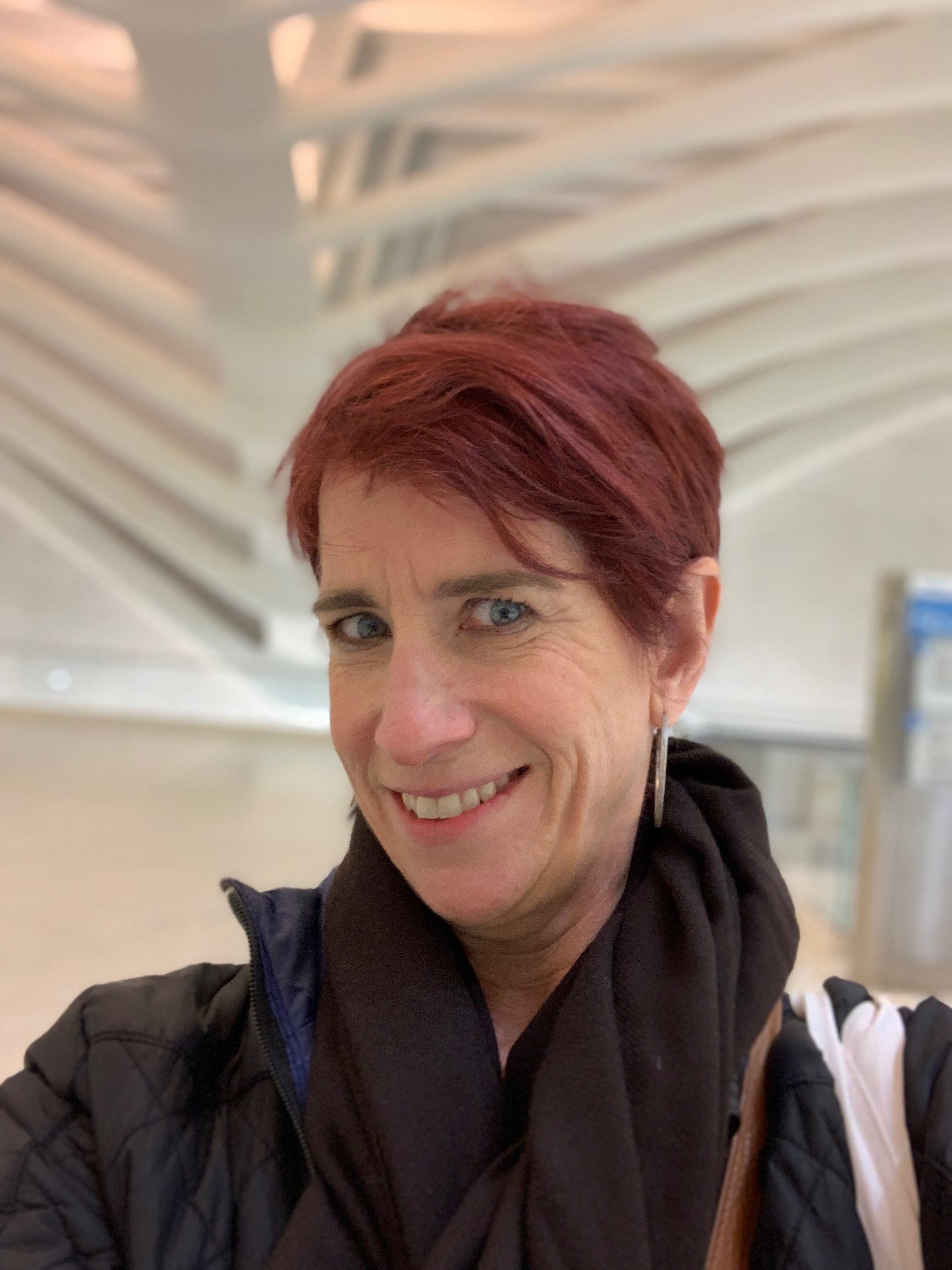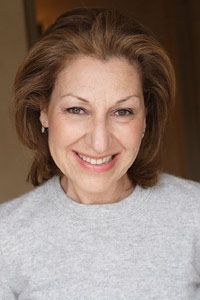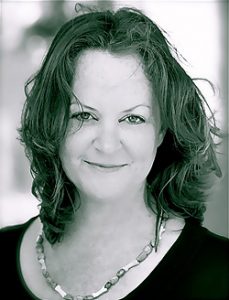 As any aspiring writer can tell you, it’s tough out there in the literary world. I sat down recently with agent, writer and freelance editor Elizabeth Kracht of the Kimberly Cameron Agency to gain some insight into the ever-evolving publishing industry.
As any aspiring writer can tell you, it’s tough out there in the literary world. I sat down recently with agent, writer and freelance editor Elizabeth Kracht of the Kimberly Cameron Agency to gain some insight into the ever-evolving publishing industry.
Open Mic: Welcome to the Open Mic. First, tell us what kind of authors you generally represent. Do you lean more to fiction or nonfiction?
Kracht: My list right now is probably split 50/50 between fiction and non-fiction. I’ve had more success selling fiction, but I’m a non-fiction reader by nature, so I’m looking to shift my list a little more toward nonfiction. I’m also hoping to find more literary fiction projects.
Open Mic: You also are a writer. Tell me some more about that.
Kracht: I’ve been working on a book over the last two years for authors called “The Author’s Checklist, An Agent’s Guide to Developing and Editing Your Manuscript,” which will be published by New World Library in January of 2020. Most of the submissions that come into my inbox are about four drafts from even being ready for an agent, and I see similar “mistakes” in most manuscripts, so I began to write them all down. I finally decided to focus on the book and share what I’ve found with writers. The book is accessible and for both fiction and nonfiction writers of different skill levels. I wanted to help authors because I know agents don’t have time to give feedback because of the volume of submissions we receive. Once an author learns some of what the book has to offer about dialogue, backstory, background, characterization, and more, they won’t forget. This book will help beginning to intermediate writers more than it will help advanced writers, but I think even advanced writers will discover two or three things that may make a difference in finding an agent, things that might be more subtle in nature like characters that aren’t reading quite right or the voice being slightly off.
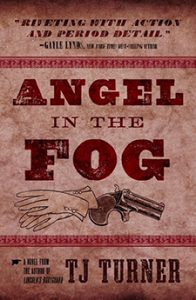 Open Mic: What are some of those big mistakes writers make when approaching an agent, either in person at a conference or via email?
Open Mic: What are some of those big mistakes writers make when approaching an agent, either in person at a conference or via email?
Kracht: Just to be aware of boundaries. Agents and editors are usually pretty tired at conferences because we’re going 24/7 and have very little time to ourselves. We don’t get many breaks, so by the end of the weekend we’re exhausted. Outside of pitch sessions, sometimes what works best for me is when an author doesn’t talk to me at all about their book, but talks about everyday things or just makes me laugh. I’m friends with many authors on Facebook. One in particular never talked about her book but made me laugh at the conference dinner banquet table. Now when she has questions about publishing, I have no problem answering her, and I’ll always look at her projects. I also think it’s okay to pitch an agent even if you aren’t quite finished with your book. We attend conferences to look for projects and help authors. Any time you can get any professional feedback is going to be good. If there’s time, take advantage of learning while you’re sitting in front of an agent or editor.
For email queries, I would say some typical mistakes would be not addressing the agent by name or sending some kind of a form letter. Sometimes authors overrepresent themselves and compare themselves to a bestseller, or conversely, they underrepresent themselves by saying things like ‘I’m not really a writer.’ You want to approach your query letter in a businesslike fashion. The ones that stand out are very straightforward and without any gimmicks.
Open Mic: I’ve described the act of getting an agent or Big 5 publisher interested in your work as akin to trying to hit a moving target at 500 yards with a pellet gun. Am I wrong?
Kracht: It can be very difficult to get an agent, but I don’t think it’s that hard IF you’re putting in the time and effort. Authors are all at different stages of development, and those who align with the industry—go to conferences, get their work evaluated, participate in writing and critique groups, work with freelance editors—tend to be the ones who rise to the top. Don’t give up.
Open Mic: Agents almost always have a select number and type of genres they represent. How did you come to yours?
Kracht: I gravitated toward mysteries and thrillers since my father was a homicide detective and Kimberley [Cameron] had a legacy with mysteries and thrillers. When I first became an agent, there was also a period of reading a lot of different things and finding what I was drawn toward. One of those genres was historical fiction. I represent more historical fiction than I realized I would. As I mentioned earlier, I’m also more of a non-fiction reader by nature, so I was also attracted to a number of nonfiction projects. Kimberley has always let her agents choose what they want to represent. And I think it’s fairly common knowledge that agents don’t take on projects they’re not interested in. Since I have a number of interests, my list is pretty eclectic.
Open Mic: How many queries do you get in an average week? And how many of those do you end up representing?
Kracht: I’m actually closed to submissions right now and have been for a while because we’re transferring over to QueryTracker, which is going to help us manage our queries better. When I am open to queries, I would say as many as 100 in a week. When authors could submit to my just email address, the quality of submissions was poor. As we’ve made authors put more effort into submitting, it has reduced our volume, streamlined the process, and made sure we get what we’re looking for. My list is split half and half between people I have met at conferences and cold submissions.
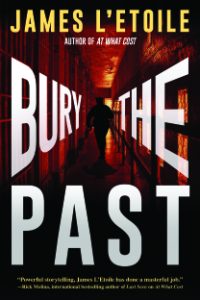 Open Mic: What are some myths or misconceptions writers have about agents?
Open Mic: What are some myths or misconceptions writers have about agents?
Kracht: I guess the biggest misconception or myth is that we’re like automatons and not people, that we’re sharks or mean. Let me tell you, I’ve seen the same traits in plenty of authors. I’m very pro-author. I got into the industry because I was interested in learning how to get published myself, and being an agent ended up becoming a very good fit for me career wise. Though writing a book for authors wasn’t part of my master plan, I wrote The Author’s Checklist because I could see there’s a large gap between when an author thinks a book is ready for publication and when an agent does. I had a moment while working on the book where I said to myself, “Why am I writing a book for authors? They’re not very nice.” My boss has been stalked. We deal with a lot of nastiness and deception. We get threatened, dumped, rejected. But eventually I got back to the heart of wanting to help. Authors often look at agents like we’re not people. Because of the volume of submissions we receive, some agents likely do the same. For every author that’s focused on one of us, we have two hundred other authors focused on us in exactly the same way, not to mention a full list of clients, and it can be overwhelming.
Open Mic: I imagine that at some point, particularly at conferences, everything feels like a quid pro quo. It doesn’t feel natural.
Kracht: I’m kind of a sensitive human being, and with conferences there’s a lot of energy coming at you all at once in a very short period of time. I came home from the PNWA Conference one year and I was depressed for two weeks. I couldn’t figure out what my problem was, but when I looked back at how many people sat in front of me at PNWA, I calculated it was about 180 people over four days of pitch sessions. That is a lot of people, and there were a number of authors pitching very tragic personal stories. I was pitched one by a woman who thought her father had killed her best friend when she was a teenager. That’s the kind of heavy stuff that’s coming at us pretty much all the time. I find that very difficult and personally tricky to manage, so when I’m sitting around the dinner table at one of the banquets and someone isn’t talking about their book, it’s like ‘whew, thank you.’ I don’t generally like to talk about superficial things, but in those moments, I really appreciate it when all we do is laugh and I can have a good time with somebody.
Open Mic: What makes a manuscript stand out for you?
Kracht: With nonfiction, it’s if the story has a strong concept and the author is the best person to tell that story. I have one non-fiction project I fell in love with because the writing was so beautiful. I’m still trying to shop this project after many years of rejection. With fiction, it’s also being pulled into the writing as well as the storytelling. I’m drawn to both literary and commercial projects. Many elements have to come together to create great writing.
Open Mic: You also do freelance editing. Why should someone put their work through an outside editor? Does it really make a difference to an agent or publisher to see that a book manuscript has gone through an editor?
Kracht: First and foremost, because a number of authors are putting their work out there and getting rejected and not sure why. Working with an outside editor, somebody who has worked in book publishing, can point out all the ways in which your project may or may not be working and offer solutions to those problems. Authors who use outside editors fast track their experience. A number of writers spend time and money going to conferences trying to figure out what they’ve done wrong and not getting the feedback they need. Sometimes this can go on for years. If you work with an editor, within three months you’ll not only know where you stand, but will also likely be well into revisions. Working directly with a professional will fast-track an author’s career. An author’s skill level changes through the process. And as an agent, if somebody says their work has been through an outside editor—and even though I know one edit usually isn’t enough—it does signal to me the quality of the project might be a little further along than others.
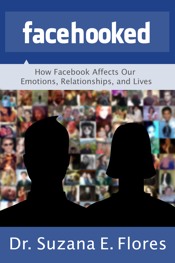 Open Mic: And what should someone looking to use an independent editor look for in choosing one to work with?
Open Mic: And what should someone looking to use an independent editor look for in choosing one to work with?
Kracht: Make sure you’re working with somebody who has worked in the publishing industry. You want somebody who knows the difference between copyediting, developmental editing, line editing, and proofreading. If your work needs more development, then a copy edit isn’t going to help. Very few projects I’ve seen are ready for a copy or line edit. Most of them need a few rounds of developmental editing before they’re ready for a copy edit. Also, be sure you know what you’re getting for your money. For example, I offer notes on the manuscript in track changes and an editorial letter (usually of nine to 13 single-spaced pages) that gets into every single issue I’ve found throughout the manuscript. I also suggest solutions to problems rather than just point out the problems and offer a phone call to talk out subtle things difficult to articulate in an editorial letter. Last, be sure you’re comfortable with the turnaround time and their communication style.
Open Mic: The industry is always evolving. Are things better or worse now for writers than they were 10 years ago?
Kracht: I came into the industry right at the time e-books were exploding and there was so much uncertainty in publishing. I feel like things have stabilized since then. What I’ve learned is not every author has the same goal. There are a number of authors who don’t really have any desire to be traditionally published. They may just want to get their work out, because they aren’t getting any younger, or they may be publishing just to leave a legacy. There are a lot of options for authors that weren’t available before.
Open Mic: Self-publishing is becoming more acceptable, or at least losing some of the negative perceptions. But overall, do you think self-publication has helped or hurt writers?
Kracht: That’s a tough question, because I think every writer has their own goals. If your goal is to reach the largest number of people, self-publishing isn’t the best option. The problem with self-publishing is little distribution. If you don’t have distribution you may sell 200 to 500 copies. Maybe some authors don’t have a problem with this, but for those authors that want to reach the maximum number of people, they’re going to be in a better position to do this through a publisher with distribution. At conferences, authors routinely approach me with their self-published books because they haven’t sold many copies. They admit they haven’t done much to market or publicize the book. I can’t do anything with a book that has already been published and has a poor sales record. I have tried to sell previously published books in the past and publishers look them up by the ISBN number. “This only sold 100 copies. Readers don’t seem to be interested.” If an author is serious about their career and not good at publicity and marketing they shouldn’t self-publish. Some people are extremely good at publicity and marketing and self-promotion; these are the ones who succeed at self-publishing.
 Open Mic: I like to end on what I hope is a fun question. Let’s say I could put you together for dinner and a conversation with just one of the following three people. Which one would you choose and why? Your options are: Benicio del Toro, Robert Plant, or Jackie Onassis.
Open Mic: I like to end on what I hope is a fun question. Let’s say I could put you together for dinner and a conversation with just one of the following three people. Which one would you choose and why? Your options are: Benicio del Toro, Robert Plant, or Jackie Onassis.
Kracht: Robert Plant. Not long after I got into book publishing, I spent a Sunday morning with my then-boyfriend watching videos of Robert Plant and Led Zeppelin, I was in awe of his freedom of self-expression. I’m drawn to the concept of a person being an instrument or channel for creative expression. And he was an obvious channel for creativity. I admire this freedom I see in singers. If I weren’t focused on publishing and writing for creative self-expression, I’d be focused on music. Working with creativity and self-expression is what I’m doing on Earth. Robert Plant is a natural draw for me. I hope I haven’t upset any of my Puerto Rican friends for not choosing Benicio!

